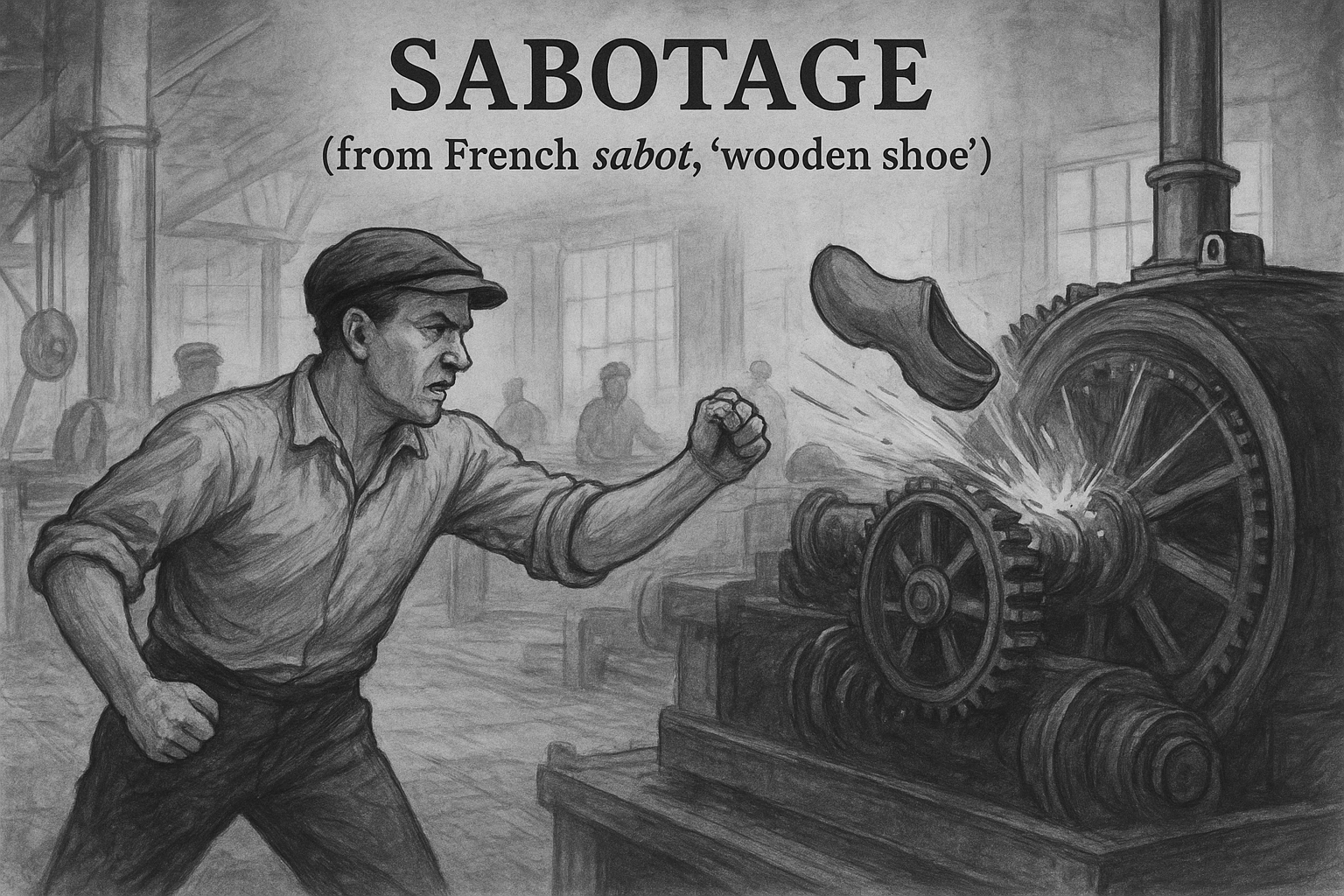Sabotage

The word “sabotage” means to deliberately damage, destroy, or obstruct something, especially to weaken an organization, system, or plan.
Origin
It comes from the French word sabot, meaning “wooden shoe.” The term originally referred to workers throwing their wooden shoes into machines to stop them a symbolic act of protest or destruction.
Etymology
The word “sabotage” comes from French:
- sabot = wooden shoe or clog
- -age = a suffix forming nouns that mean “action” or “result”
So literally, sabotage meant “the action of using clogs (sabots).”
Historical Background
In the late 19th century (around 1890s) during the Industrial Revolution in France, factory workers began protesting poor conditions and unfair treatment.
One story — possibly exaggerated but symbolic — says that angry workers threw their wooden shoes (sabots) into the factory machines to break or jam them, stopping production.
This act became a symbol of workers deliberately damaging machinery as a form of protest. French newspapers and labor unions began using sabotage to describe intentional damage or obstruction, especially for political or social reasons.
Modern Usage
By the early 20th century, “sabotage” had spread into English and other languages. During World War I and II, it became a common term for covert acts to damage the enemy’s equipment, transportation, or communication systems.